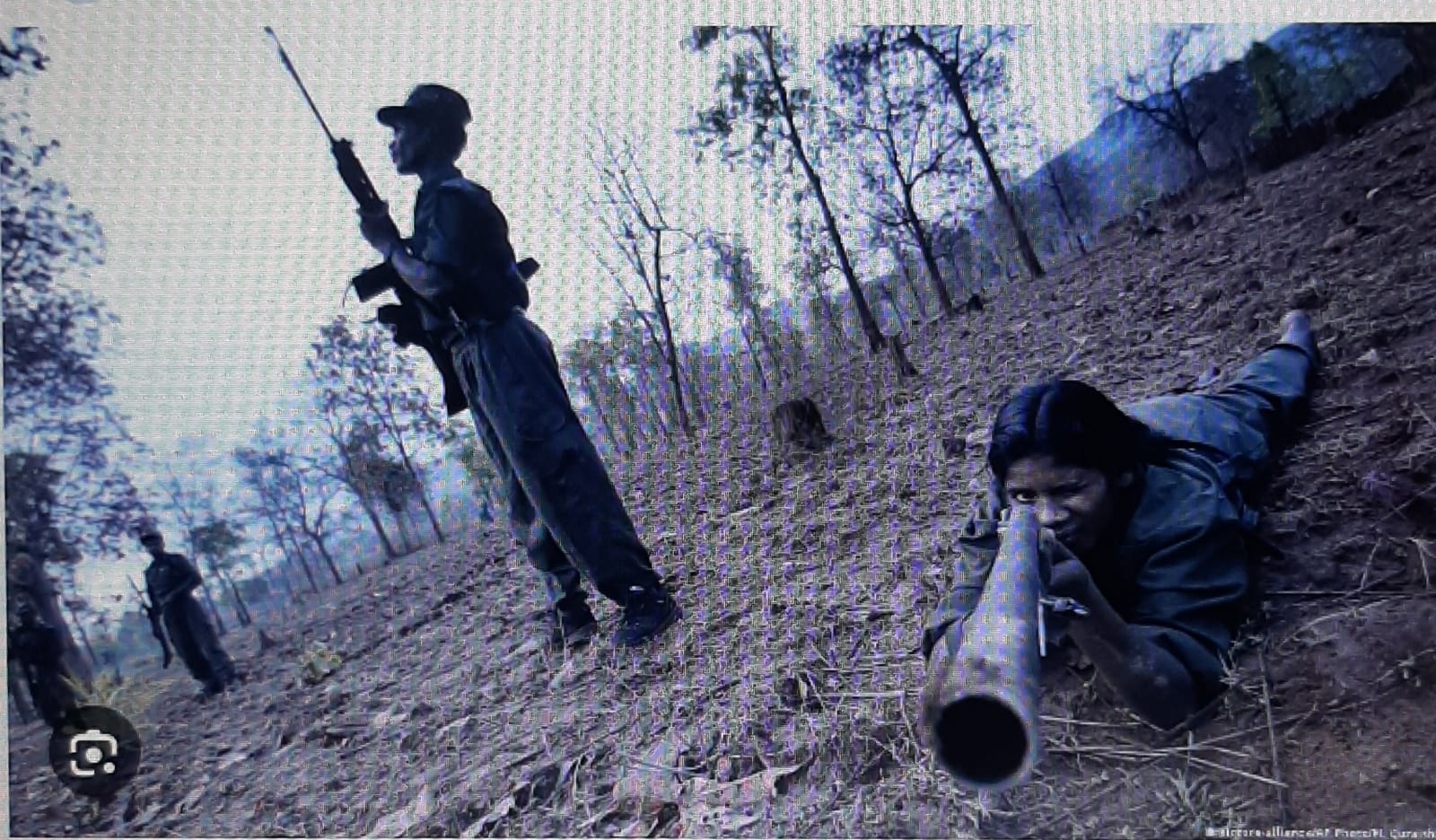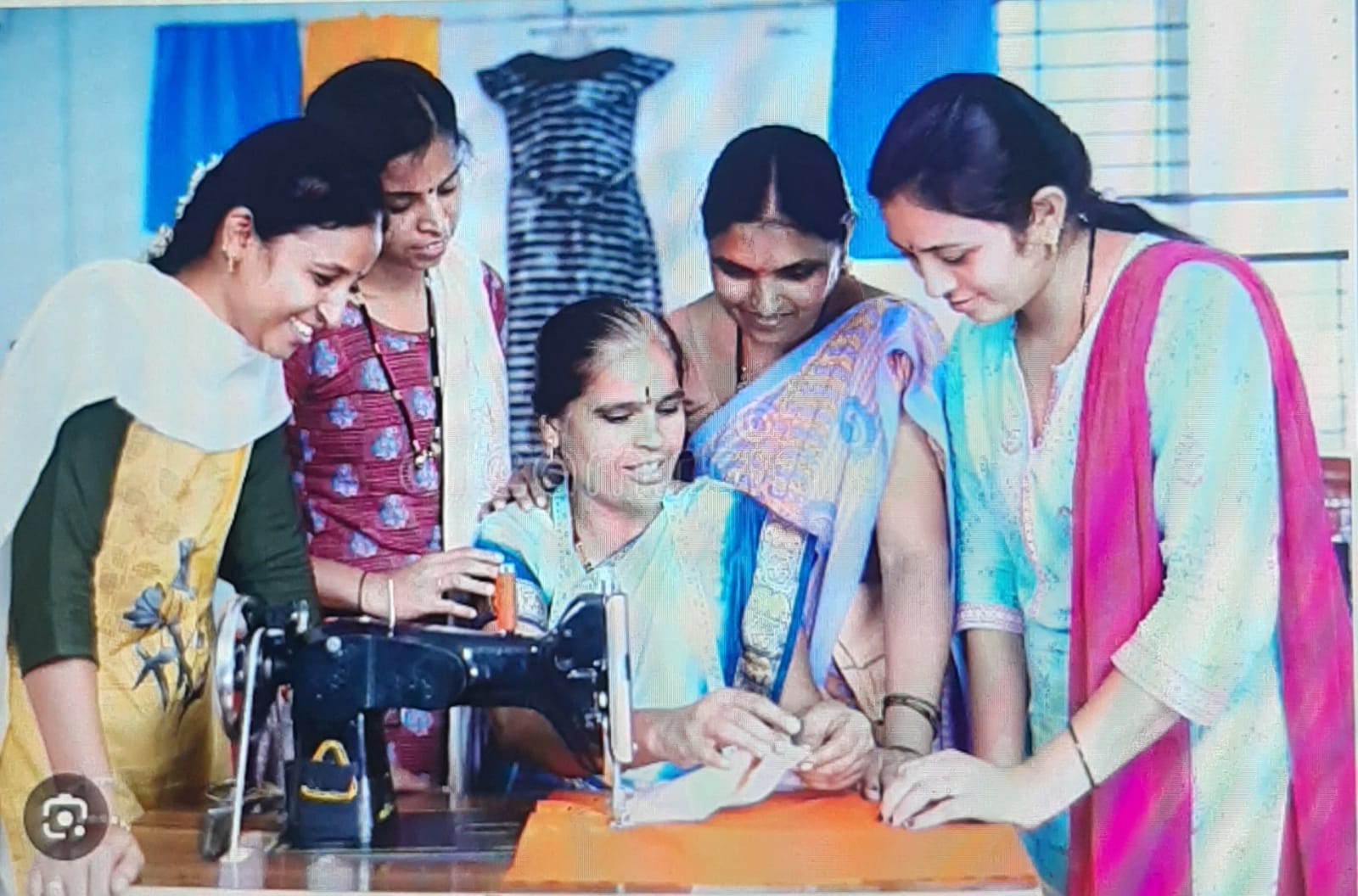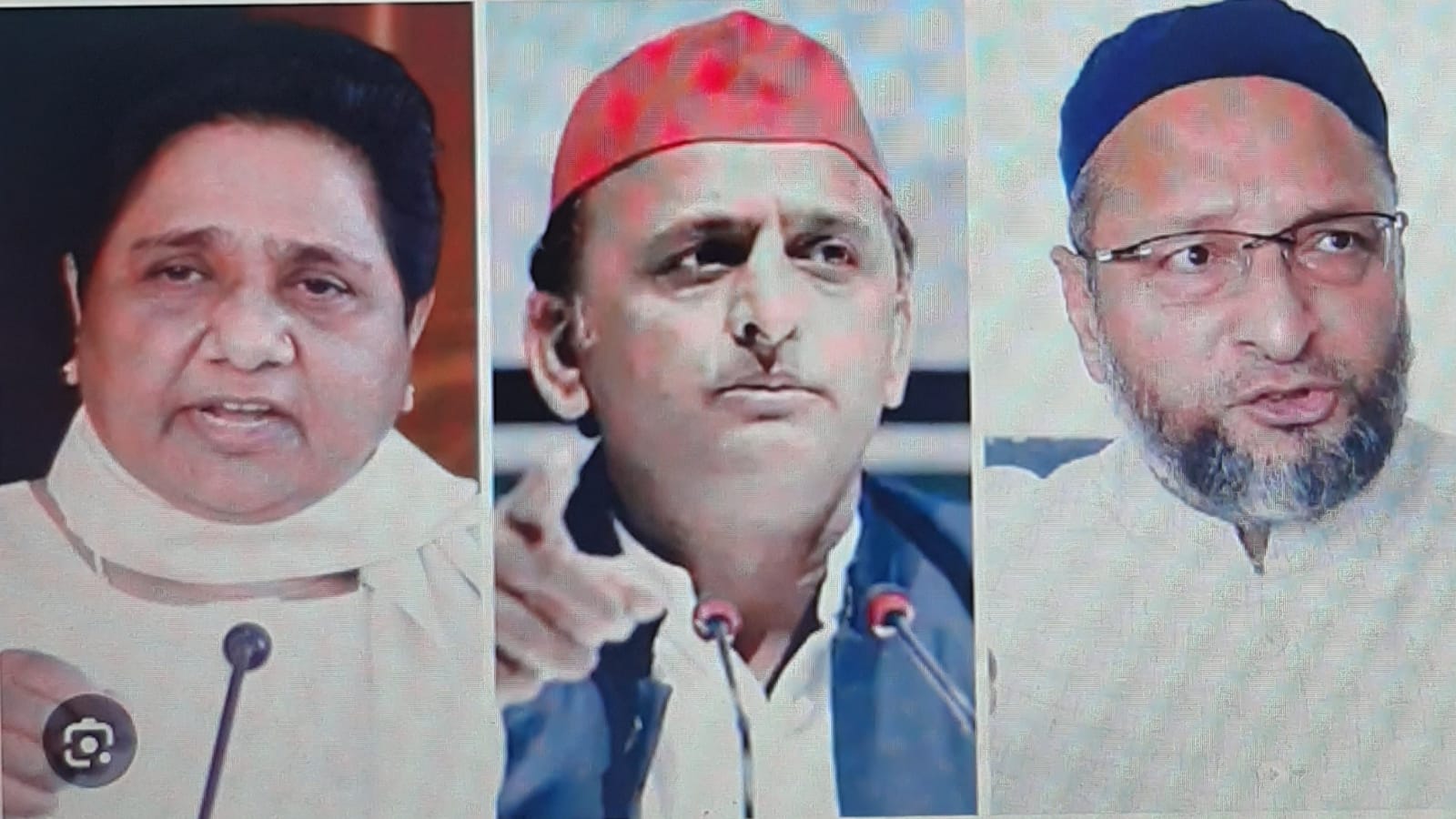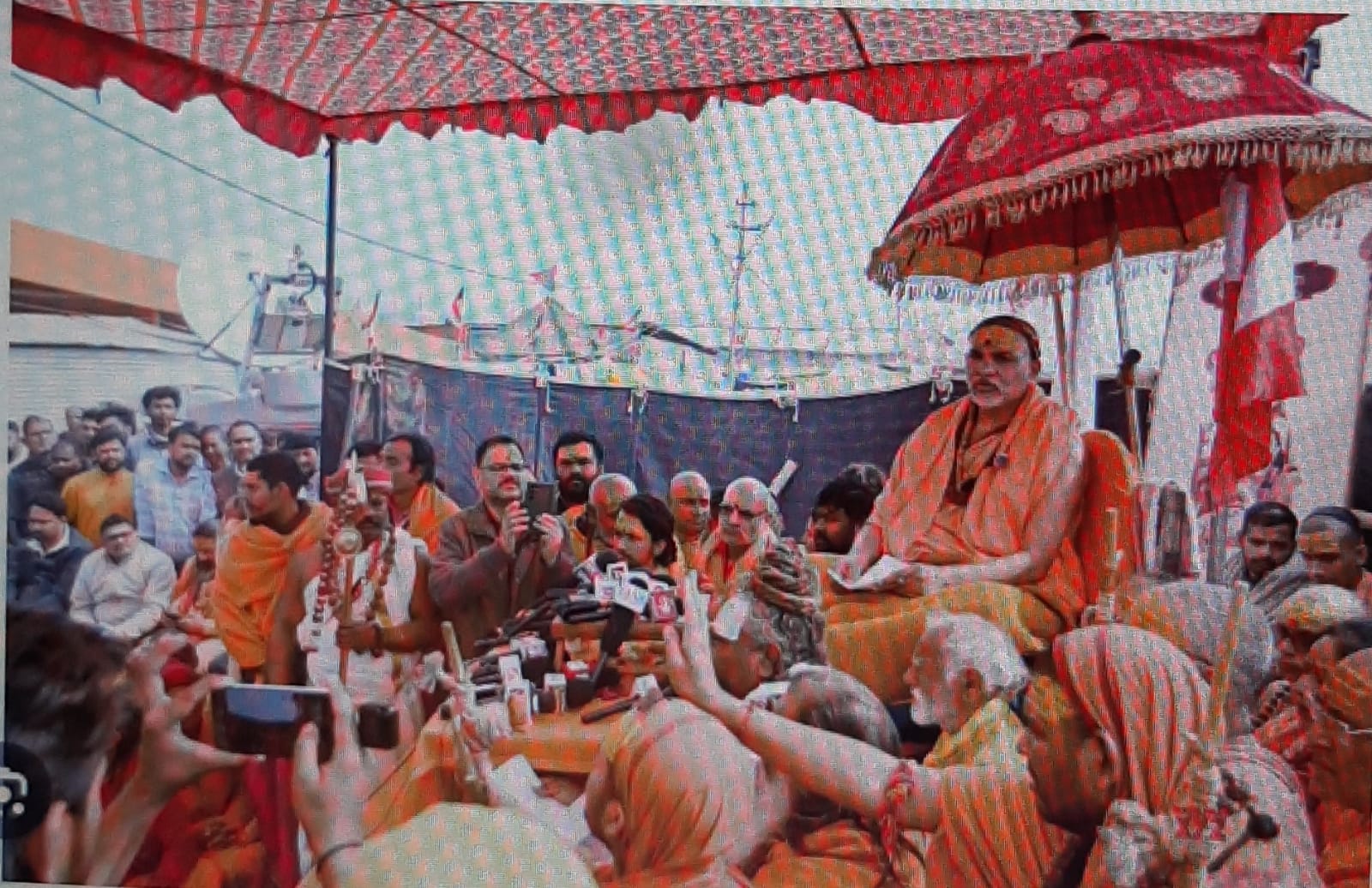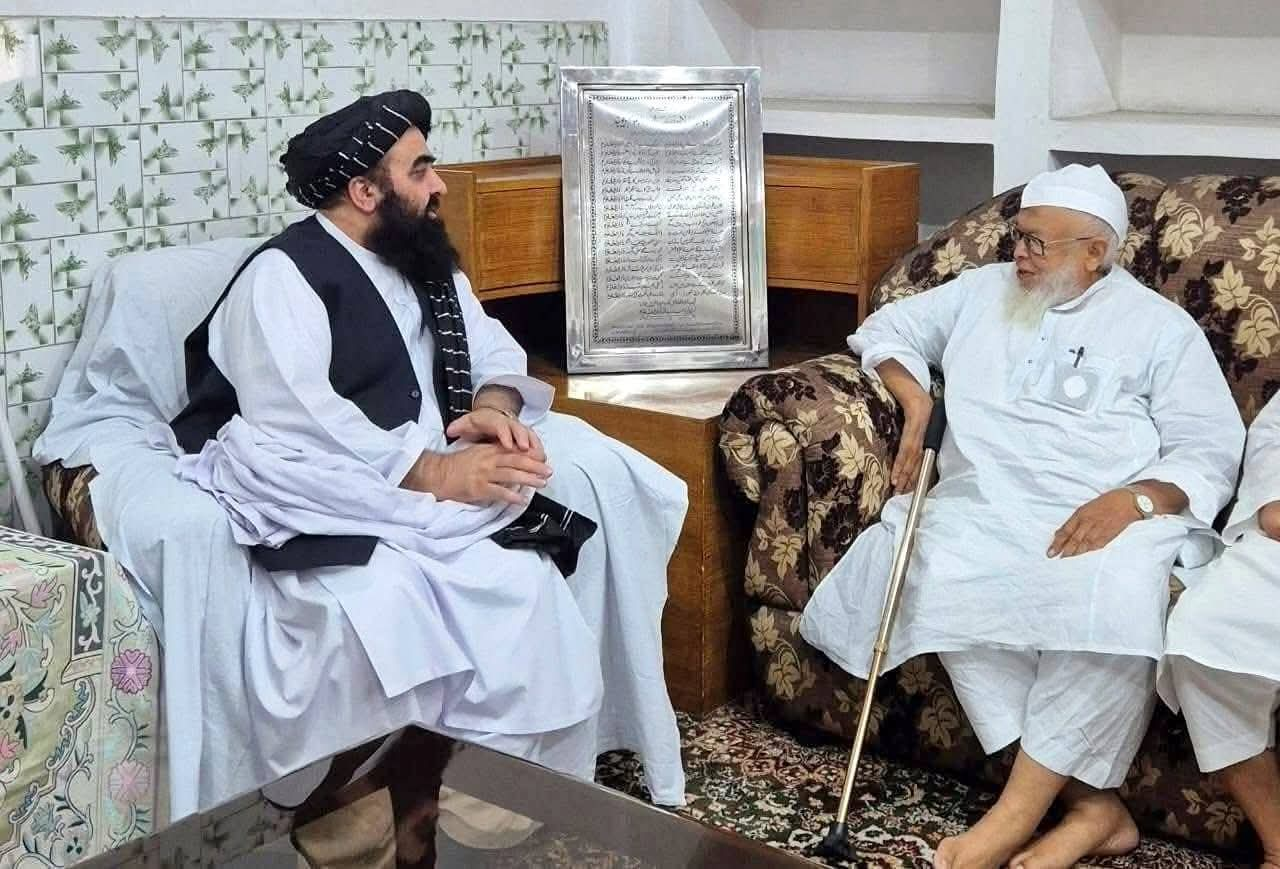
Afghanistan Foreign Minister Amir Khan Muttaqi’s Deoband’s visit was indicative of Taliban government’s “ideological commitment” to the institution. The Haqqania Madarsa in Pakistan, which produced large number of “Taliban” had been historically linked to the Deoband Madarsa. Deoband Madarsa had also played significant role in the freedom movement and its “ Reshmi Rumal Movement” is strongly engraved in the memory of the freedom struggle of the country writes M Hasan
Lucknow, October 11: Even as large number of people owing allegiance to “Talibani ideology” have been facing trial in various courts in India on various issues, amid heightened security Deoband in Saharanpur district in UP today had a “Talibani” guest, who interacted with clerics of Darul Uloom Deoband (DUD) and other people.
The visit of Afghanistan’s Taliban government foreign minister Amir Khan Muttaqi to DUD evoked good response from large gathering of clerics and students of Madarsa, which is globally known for propagating “Wahabi” sect of Islam. The minister, who is on a six-day visit to India, had already met the India External Minister J Jaishankar in Delhi and the two sides have expressed commitment to further expand diplomatic ties.
However, Muttaqi’s Deoband’s visit was indicative of Taliban government’s “ideological commitment” to the institution. The Haqqania Madarsa in Pakistan, which produced large number of “Taliban” had been historically linked to the Deoband Madarsa. It may be recalled that Deoband Madarsa had also played significant role in the freedom movement and its “ Reshmi Rumal Movement” is strongly engraved in the memory of the freedom struggle of the country.
It may be recalled that the Reshmi Rumal Movement (Silk Letter Movement) was a covert plot by Deobandi clerics between 1913 and 1920 to overthrow the British Empire by forming an alliance with Germany, Ottoman Turkey, and Afghanistan. The plan was exposed when British intelligence in Punjab captured letters written by Ubaidullah Sindhi and addressed to Mahmud al-Hasan, which were hidden on silk cloths, leading to the movement’s name.
However, after the out-break of “Talibani terrorism” during the last more than a decade Deoband came to be known for all wrong reasons with security and intelligence forces keeping tight vigil on the town.
It seems Afghanistan now wants to write a fresh “peaceful and terror-free” chapter as Muttaqi has assured the Indian Government that “Afghanistan land” will not be allowed for causing violence in other countries. “I am thankful to the Ulema of Deoband and the people of the area for this warm welcome… The future of India-Afghanistan relations seems very bright,” Muttaqi said. He further said “the journey has been very good so far. Not just the people of Darul Uloom, but all people of the area have come here”.
The first senior Taliban functionary to travel to India after the return of the group to power following US withdrawal in 2021, Muttaqi arrived in New Delhi on Thursday from Russia. He also met external affairs minister S Jaishankar on Friday.
His visit marks a significant step forward in New Delhi’s efforts to forge a working relationship with the Taliban, though India, like a large part of the global community, does not officially recognize the Talibani regime in Kabul. But indications are that in near future for geopolitical reasons the diplomatic relationship is likely to strengthened. His visit to Deoband also appeared to be beyond the politics as he himself stressed that “Deoband is a big centre for the Islamic world… and Afghanistan and Deoband are connected, hence I am going to meet the leaders there. We want our spiritual students to come and study here too,” he said on Friday in Delhi.

It was ideologically significant visit for Mauttaqi as he participated in a scholarly session, where he studied a Hadith (Prophetic tradition) under Rector of the seminary Maulana Nomani in the seminary’s central library. He later sought and received permission to teach Hadith, for which the rector conferred upon him the Hadith Sanad (certificate of authority). Following this, Muttaqi earned the right to use the title “Qasmi”, denoting his academic connection to the prestigious institution. He can now formally write his name as Maulana Amir Khan Muttaqi Qasmi.
Darul Uloom Deoband has produced Islamic scholars in India and around the world. The seminary was established in the late 1800s by Sayyid Muhammad Abid, Fazlur Rahman Usmai, Mahtab Ali Deobandi and others. The foundation of the current campus was laid by Muhamad Qasim Nanautawi. The school mainly teaches manqulat, or Islamic education based on the study of texts and traditions from sources like the Quran and Hadith. Known for “Wahabi teachings of Islam”, the DUD has globally served Muslim nations with huge Islamic literature.
Links between DUD and Afghanistan are historically strong for this reason and seminary has high regards among Talibani leaders in Afghanistan. Several senior commanders and leaders of the group studied at Darul Uloom Haqqania in Pakistan’s Khyber-Pakhtunkhwa province, which was founded on the lines of Darul Uloom Deoband. Maulana Abdul Haq, who founded Darul Uloom Haqqania, studied and taught in the seminary in Deoband before Partition in 1947. His son, Sami-ul-Haq, is referred to as the ‘Father of the Taliban’ because of Darul Uloom Haqqania’s role in grooming Taliban commanders and leaders.
Talking to newsmen in Delhi on Friday Muttaqi had highlighted the significance of his visit to Deoband, saying it has a long history with Afghanistan. “Deoband is a significant religious place for us. This place and its people have a long history with Afghanistan. The way our students come here to study engineering and science, they also come here for religious studies,” he said.
(M Hasan is former Chief of Bureau Hindustan Times, Lucknow)



